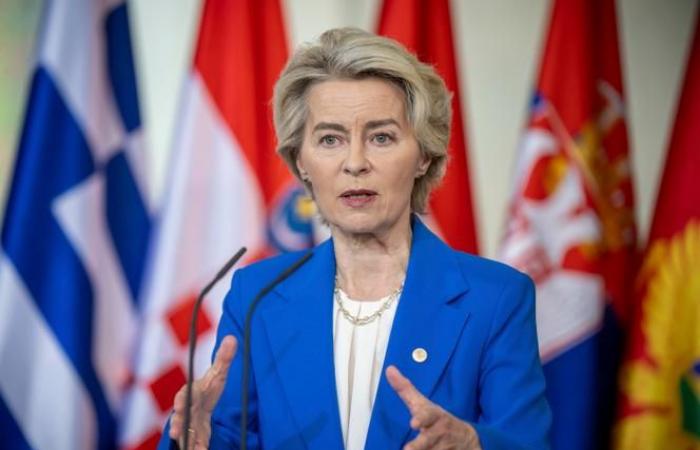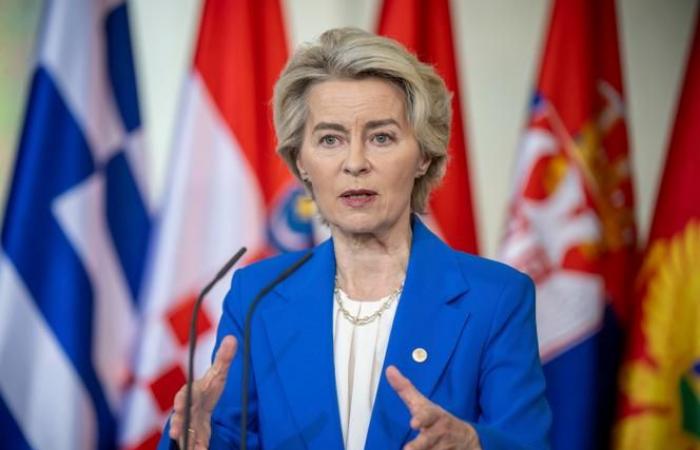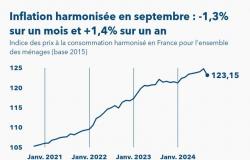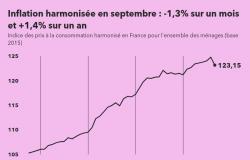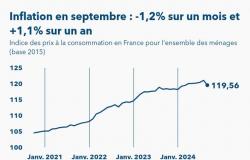The European Commission will propose new legislation to encourage the expulsions of irregular migrants, announced the President of the Commission Ursula von der Leyen in a letter to the Twenty-Seven published Monday, October 14 in the evening.
“The Commission will present a new legislative proposal” with “clear obligations of cooperation for returned persons” and the desire to “effectively streamline the returns process”indicated Ursula von der Leyen, thus responding to the request of several member states of the European Union (EU).
“We need a new legislative framework to strengthen our capacity to act”further explained the President of the Commission in this letter addressed to EU countries, before a European summit Thursday and Friday in Brussels, partly devoted to migration issues.
To do this, Brussels is proposing to facilitate the expulsions of people in an irregular situation, in particular by establishing mutual recognition of decisions taken by this or that Member State.
Read also | Article reserved for our subscribers Immigration: German toughening provokes tense debates in Europe
Add to your selections
“System gaps”
“We must build a level of harmonization and trust which will ensure that migrants, subject to a decision to return to one country, cannot use the gaps in the system to avoid this return elsewhere”explained Ursula von der Leyen.
Less than 20% of decisions to expel migrants in an irregular situation are followed up, she further underlined, promising reinforced cooperation with the third countries concerned, for example by toughening up the granting of visas to countries recalcitrant.
“Visa policy alignment has proven to be an important tool for managing irregular movements to the EU”noted Ursula von der Leyen, taking Bangladesh or Ghana as an example.
The President of the Commission also suggests developing relationships “strategic” with the countries of origin and transfer, like what has already been done with Libya or Tunisia. The EU has signed agreements with these countries intended, among other things, to slow down the departure of migrants to the EU from their territory, or even repatriate them to their countries of origin.
Calls to revise the “return directive”
“Returns from North Africa to countries of origin have intensified through EU-funded operations to reach 17,700 [retours] in 2024 »welcomed Ursula von der Leyen.
The World Application
The Morning of the World
Every morning, find our selection of 20 articles not to be missed
Download the app
These agreements put in place in Tunisia or Libya have made it possible to reduce irregular entries of migrants into the EU via the central Mediterranean by some 66%, she further underlined. But, she acknowledged, arrivals via the western Mediterranean and the Atlantic to Spain increased at the end of September by 56% year-on-year. She therefore recommends strengthening the EU’s partnership with countries like Mauritania, to slow down these departures.
Read also: Article reserved for our subscribers Migration crisis: the mixed results of the agreements made by the European Union to limit entries on its soil
Add to your selections
The interior ministers of the European Union debated last Thursday in Luxembourg a further tightening of migration policy, amid calls to revise the “return directive” and discussion on transfers of migrants to third countries. Several European countries have called for a review of this “return directive” of 2008 which harmonizes the rules regarding deportation at the borders. France and Germany notably supported a note from the Netherlands and Austria on the subject in order to ” facilitate “ et “accelerate” returns. However, a first attempt at revision in 2018 failed.

